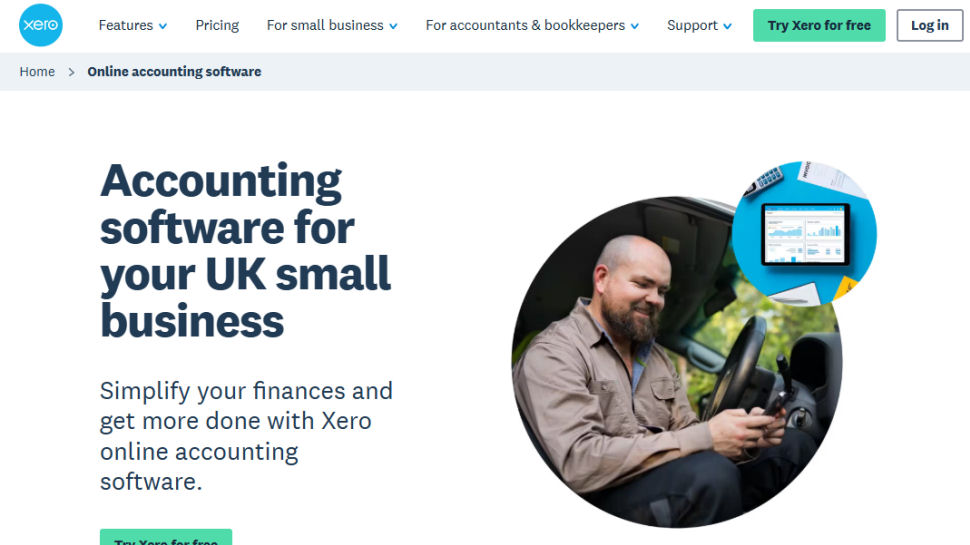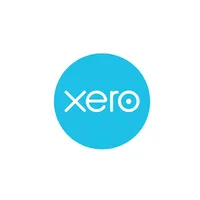Sponsored by Xero
How to choose accounting software for small business
Run your business more efficiently by ensuring you've got the right accounting software in place

The selection of appropriate accounting software for small businesses is critical to operational efficiency and long-term financial stability.
Your business needs assessment must include all aspects that affect your operations, such as company size, industry type, and financial management requirements.
Elevate your business with Xero's cloud-based accounting. Manage finances securely online with real-time insights, easy invoicing, and seamless collaboration—accessible anytime, anywhere. Unlike outdated manual methods, cloud accounting is fast, cost-effective, and secure, keeping your data safe even in the event of an emergency.
TechRadar Pro Approved Sponsored Offer
Access your business needed
Begin by conducting a truthful evaluation of your business requirements. Retail businesses require inventory management systems with robust capabilities to track inventory levels, manage supplier relationships, and handle sales tax calculations.
Service-based organizations find greater success with software that includes time-tracking and project management features, as well as easy billing functions.
The construction, healthcare, and hospitality sectors need specialized accounting solutions that include project cost tracking, client access portals, job management systems, and regulatory compliance tools.

Essential features to evaluate
The evaluation process for accounting software should start with the assessment of fundamental features, which include:
- The software needs to offer customizable invoice templates, automated payment reminders, and multiple payment options to optimize cash flow.
- The system enables simple bank transaction reconciliation, maintaining record accuracy and simplifying month-end financial reporting.
- The system enables users to track expenses effectively through robust features that let them organize costs by category, link receipts, and produce financial reports for better budget control.
- The software needs to enable users to create personalized financial reports that help them better understand their financial situation and make better business choices.
- Businesses with employees should select platforms that include payroll processing features with automated tax calculations to reduce errors and save time.
Security features
The protection of your financial data stands as an essential priority. Your financial data requires protection through software that implements data encryption, automated backups, and sophisticated user authorization systems.
Businesses operating in regulated sectors must prioritize data security due to strict compliance requirements.
Budget considerations
The selection of accounting software depends heavily on budget limitations, which businesses need to consider.
The cost structure of accounting software includes subscription fees that users pay either monthly or yearly. The costs of essential features such as payroll processing and advanced analytical tools will add to your total expenses.
Solo small business owners can use Wave or ZipBooks because both offer free or affordable plans. The software systems lack essential features and integration capabilities that larger businesses need.
Cloud-based vs. desktop solutions
The decision between cloud-based and desktop accounting software is a vital one for businesses.
The cloud-based platforms QuickBooks Online and Xero enable users to access their financial information through any internet-connected device.

The ability to access financial data from any location makes cloud-based solutions ideal for remote teams and business owners who spend time away from the office.
Businesses that require better data protection and offline access tend to choose traditional desktop accounting systems.
Popular accounting software options
The accounting software market continues to evolve in 2025, offering small businesses more automation, integration, and accessibility than ever before.
Among the best accounting choices for small businesses for this year, FreshBooks, QuickBooks, Xero, and Sage Accounting stand out for their distinct strengths in usability, scalability, and customization.
FreshBooks
FreshBooks remains a favorite among freelancers and small business owners who prioritize simplicity and intuitive design.
It offers features such as time tracking, expense management, and automated invoicing, making it ideal for service-based professionals. Its modern interface and strong mobile app support allow users to manage finances seamlessly from anywhere.
QuickBooks
QuickBooks continues to dominate the small-business accounting market thanks to its comprehensive features and deep integration with other financial tools.
Businesses benefit from its advanced reporting, payroll management, and tax preparation capabilities, which streamline operations and enhance visibility into cash flow. QuickBooks also offers versatile subscription tiers that accommodate startups and growing enterprises alike.
Xero
Xero has gained recognition for its powerful cloud-based platform and strong multi-user collaboration features.
It excels in bank reconciliation, real-time reporting, and third-party app integrations, which are critical for teams managing international or remote operations.
Xero’s focus on automation and secure data synchronization has made it a top choice for modern digital businesses.
Sage Accounting
Sage Accounting, known for its robust reliability and scalability, appeals to both small businesses and midsize companies.
It provides solid billing, inventory, and compliance management tools suited for organizations with more complex accounting needs.
Sage’s long-standing presence in the market ensures strong customer support and a trusted reputation for financial accuracy and control.
User experience matters
Your selection process should prioritize ease of use. Your search for software should focus on systems with easy-to-use interfaces, simple navigation, and complete onboarding documentation.
The system's user-friendly design helps your team learn faster while performing their daily work more efficiently. Leading platforms offer free trial periods that let users experience their interfaces and features before making a purchase decision.
You should read user feedback and ask accountants for their opinions about both software dependability and customer service quality.
Future-proofing your choice
Your growth planning requires you to evaluate how well the accounting software will adapt to future needs and how expandable it is.
Your accounting software should connect without issues to all your current business systems, including CRM tools, eCommerce platforms, and inventory management systems.
Your business growth needs software that provides an extensive app marketplace and lets you add new modules and upgrade existing ones.
Customer support and compliance features
Your business needs reliable customer support to operate efficiently while safeguarding its data assets.
Your accounting software should provide immediate technical support, comprehensive online documentation, and robust security features, including two-factor authentication.
Businesses subject to regulatory requirements need software that provides compliant solutions for tax documentation and audit procedures.
Industry-specific solutions
Software solutions that address specific industry needs should be your priority when your business requirements include project management for construction, advanced inventory tracking for retail, and cost allocation for creative agencies.
The software provides quick deployment, simple implementation, and strong confidence in financial management processes.
Final decision-making
Your team and trusted advisors should join the selection process after you have reduced your options based on necessary features and financial limitations.
The shortlisted software options should be tested through their free trials to evaluate their security features, customer support, and integration functionality.
The platforms need to demonstrate their ability to grow with your business requirements. Your thorough research, combined with experimental testing, will create a solid financial management system that will drive your small business toward enduring success.
Sign up to the TechRadar Pro newsletter to get all the top news, opinion, features and guidance your business needs to succeed!
Bryan M. Wolfe is a staff writer at TechRadar, iMore, and wherever Future can use him. Though his passion is Apple-based products, he doesn't have a problem using Windows and Android. Bryan's a single father of a 15-year-old daughter and a puppy, Isabelle. Thanks for reading!

